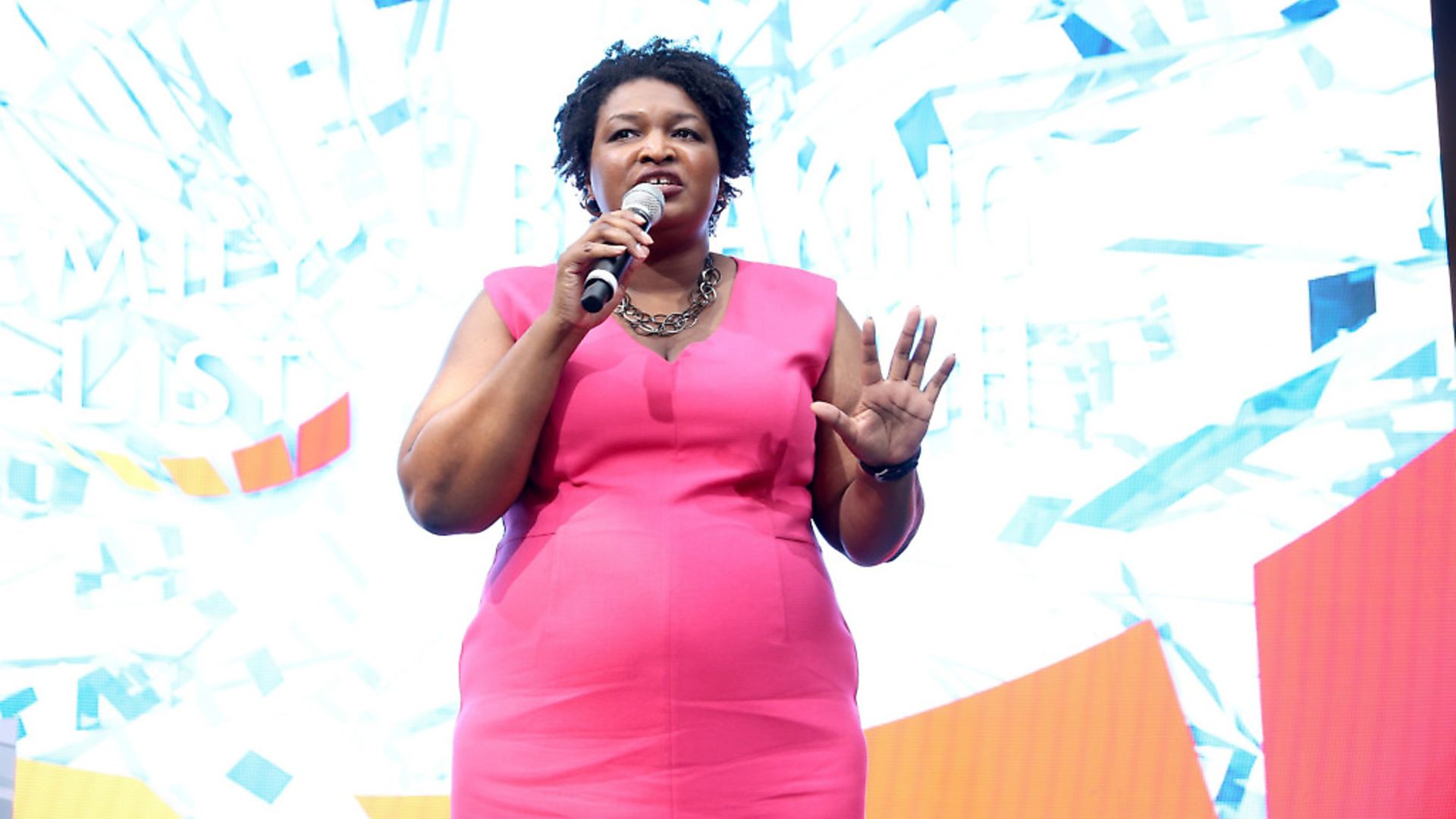
Chimene Suleyman discusses the radical new face of identity politics, and why it’s something to be celebrated and not feared.
Last week, Stacey Abrams was nominated as the Democratic nominee for governor of Georgia. And so, history was made. Because Stacey Abrams is black. And she is also a woman. And this is the Deep South.
This is not just a first for Georgia, which has never elected a female or black governor. This is a first for the entire country: Abrams is the first black woman to be a major party nominee for governor in the United States (in fact, the first black person, in Georgia). She won the race with more than 75% of the vote.
Abrams did not win the fight because she is a black woman – but there is no doubt that her blackness and femaleness informed her campaign. In April, she penned an essay about the $200,000 debt that she acquired, like many do, in student loans, credit card debt, and back taxes.
She spoke of how so much of her debt came from pursuing further education and, more emotionally, from helping her family. ‘I suspect my situation will sound familiar to others who are the first in their families to earn real money,’ she said. She continued to remind her readers that this is not unrelated to her being a black woman: ‘Race and gender play a major role in determining just how big of a financial disadvantage we’re likely to face. In 2013, the average wealth per US household was $81,000. But dig into the numbers and a clearer picture appears: White families averaged $142,000 in wealth, Latinx households came in at $13,700, and black families brought up the rear at $11,000. Asian Americans are closer to whites than other people of color, but they still lag. The combined effects of discrimination in labour, housing, and education have compounded the struggle for wealth among communities of colour.’
Abrams called for an expansion on Medicaid, gun safety, and criminal justice reform, but she centred her campaign around childcare – and she reminded us of this in her victory speech. ‘When all of Georgia’s children have a chance to reach their potential, regardless of their zip code or their family’s salaries, we can reach our potential as a state – and we will unleash the full power of our people,’ she proclaimed to a cheering crowd. Meanwhile, the Republican candidates are mainly to be found adoringly brandishing their guns as they rant about rounding up and deporting immigrants.
Abrams beat her primary opponent – ‘other Stacey’ – Stacey Evans, with an immense 400,000 votes, and in a country that is so divisively torn in its race politics, it matters that ‘black Stacey’ was not overlooked. Her win is all the more symbolic for taking place in a state that voted for Trump in the 2016 presidential election, and will highlight the possibilities for black women like Abrams across the US.
Blackness was even present briefly for ‘other Stacey’, in a campaign video which ended by fading from her face to Martin Luther King’s. It was misguided to say the least, and seemed to be yet another example, for many black voters, of the same appropriating and empty prophesying that many out-of-touch white figures are guilty of.
But here was Abrams, who did not need to use race as a marketing tool, only be proud of how her own had brought her to place of community understanding and betterment. Before she won the election, political analyst Davis Fox warned that: ‘Race is a factor that sits in the corner of the room all the time. I’m very worried that this is a bitter train wreck between a black and a white.’ But there was no such train wreck, in an election that did not pit race against each other, simply recognised the importance and benefits of it.
Abrams has never shied away from identity politics and neither should we. Black women showed up for Abrams, because Abrams showed up for black women. She did not win this vote on representation, she won it because she has not overlooked her own experiences and will use these directly for the communities who have walked a similar life, also championing immigrants and the LGBTQ community.
Abrams now faces what is likely to be a tough general election in November, and the historical knowledge that only four African-Americans have ever served in the United States as governor. But her primary win is a statement on the importance of having politicians who appeal and relate specifically to marginalised communities. It matters that Stacey Abrams is a black woman. And it matters that this contributed to her win. She won because she was the best person for the job, no doubt, with a successful campaign that was informed by her own blackness.
But Abrams’ ‘degree of melanin’, as she calls it, and her marginalised-focused campaign should not make her unrelatable to white women in rural areas. After all, Abrams needs their votes too. It is to be hoped that Georgia’s women, black and white, will understand that someone who works from a position of the disenfranchised works to bring people up, not to take people down.
‘I wasn’t supposed to be here,’ Abrams said, a comment on her being both black and working class. And that is exactly why she should be: where politics and an every-day understanding of the world finally come together.
Chimene Suleyman is a writer and poet









